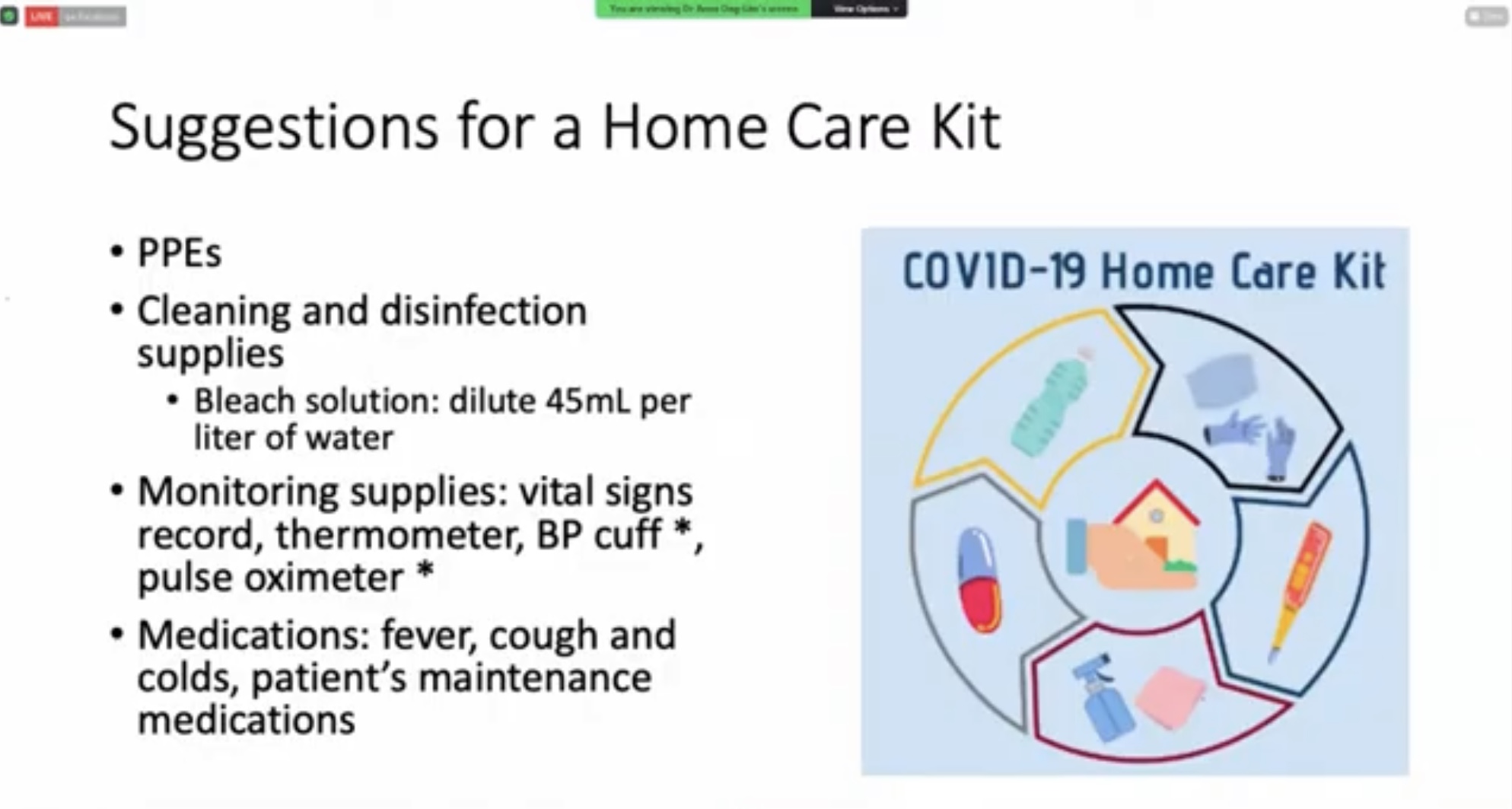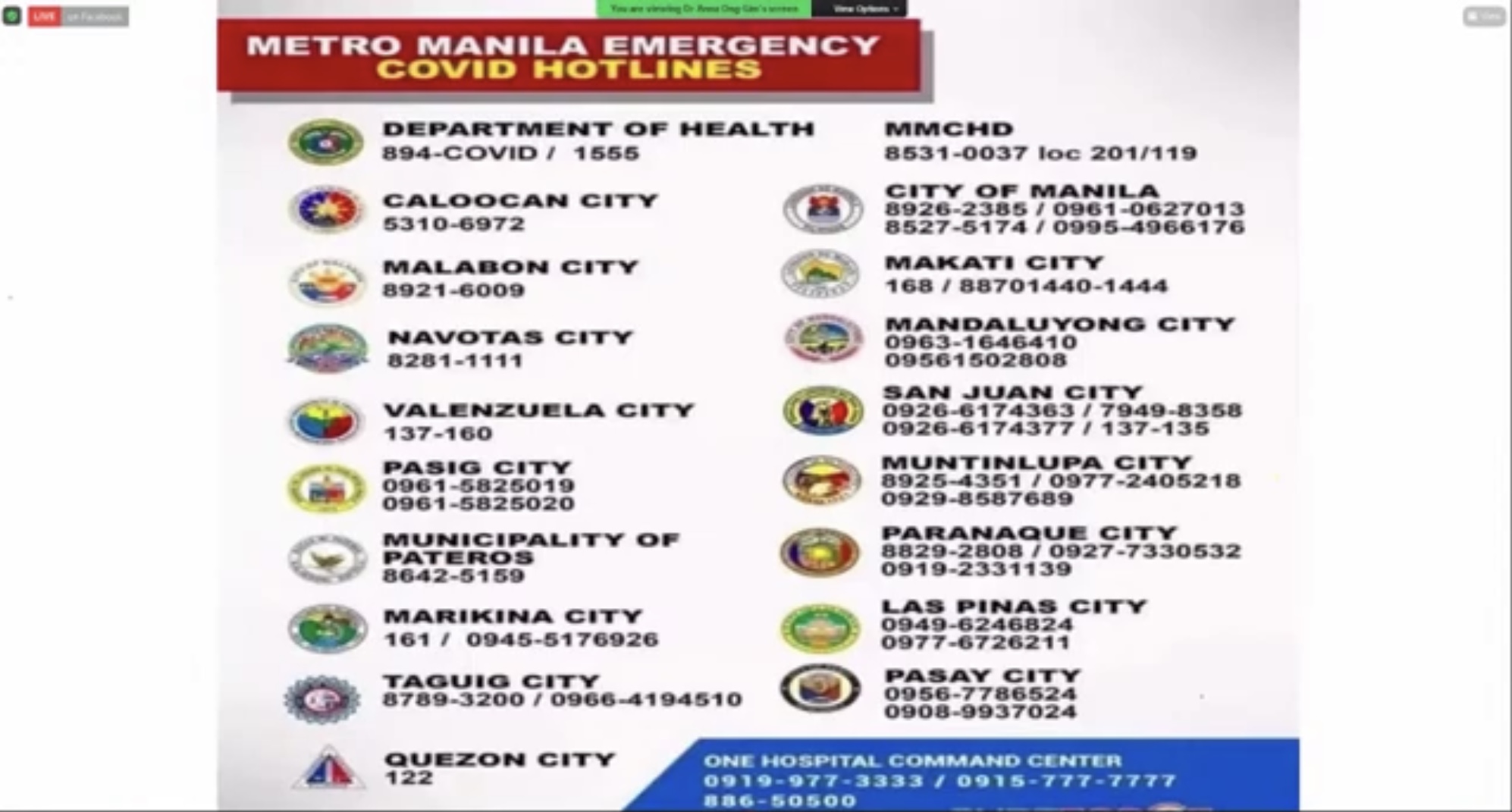How to care for a COVID positive family member at home
A number of hospitals and quarantine facilities in the country, especially in areas within NCR, have been nearly filled to capacity following the surge in COVID-19 cases in the Philippines since March, leaving some sick individuals no choice but to stay at home.
The home care option for individuals who tested positive for the virus, however, is only advisable for those who are asymptomatic and those with mild or moderate disease without risk factors. The World Health Organization emphasized that it would still depend on three factors: clinical evaluation of the COVID-19 patient, evaluation of the home setting, and ability to monitor the clinical evolution of a person with COVID-19 at home.
First things first—it’s important to determine whether or not the patient qualifies for home care. The decision varies per case, taking note of their clinical presentation, requirement for supportive care, and risk factors for severe disease such as age, smoking, obesity, and noncommunicable diseases like cardiovascular disease, diabetes mellitus, chronic lung disease, chronic kidney disease, immunosuppression, and cancer.
The patient may be considered for home care if they have no shortness of breath, no difficulty breathing, with respiratory rate of over 30 breaths per minute, and with oxygen saturation on room air of at least 94%.
Among the requirements for home care are a separate room and bathroom for proper isolation, good air flow, closed door, and a good delivery system. “This is for the daily needs of the individual without a lot of contact between the people of the household and the isolated individual,” Dra. Anna Lisa T. Ong-Lim, MD explained in a webinar dubbed "What to Do When COVID Hits Home." The patient should also have their own medical mask, linen and utensils, etc.
Another factor that needs to be kept in mind is the caregiver’s ability to assess the patient adequately. If they’re not working in the medical field, they should be in touch with trained health workers and/or public health personnel until the symptoms are eased. What should a COVID-19 home care kit contain? Dra. Lim enumerated the following:

Ideally, the caregiver has to monitor the isolated person at least once a day. The WHO said that if a patient’s symptoms worsens from the initial clinical assessment, he or she should be directed to urgent care.
According to the Centers for Disease Control and Prevention, patients need urgent medical attention as soon as they exhibit severe symptoms like trouble breathing; persistent pain or pressure in the chest; new confusion; inability to wake or stay awake; pale, gray, or blue-colored skin or lips; and nail beds or the appearance of a pinkish hue under the nail plate, among others.
Household members, for their part, must avoid entering the "sick room" throughout the isolation period. Should they need to see the patient, they have to maintain a distance of at least one meter from them and cover their mouth and nose with PPEs. Waste generated at home while caring for a COVID-19 patient during the recovery period should be packed in strong bags and closed completely before disposal and eventual collection by municipal waste services.
Lim reiterated the importance of staying in touch with medical workers early on in their diagnosis, “even if you assess your family member to be fairly well and they look like they are going to be able to manage being at home.” You may refer to these local government units and COVID-19 hotlines for help:

You may also reach out to the following for teleconsultations: TelAventus MD, MedCheck E-Consult, CloudPx, SeeYouDoc, HealthNowPH, TrinityCare at 0917-111-1975, or the Office of the Vice President's Bayanihan E-Konsulta.
Prevention is better than cure, as reiterated by the Department of Health. Here are some tips that can help you keep coronavirus at bay:


